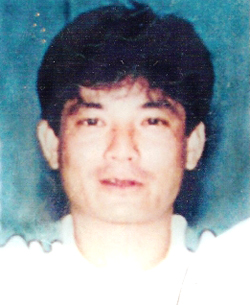Naw Kham, known as the Godfather of the Golden Triangle, where Thailand, Burma and Laos meet, was finally nabbed at his mistress’s home in Bokeo province, on Wednesday night, 25 April, confirmed sources in the area.
 The raiding party was made up of Chinese and Laotian officials. The Chinese had been hot on his tail since the killing of 13 sailors near the Golden Triangle on 5 October 2011. The arrest ended his 7 year “reign” in the area.
The raiding party was made up of Chinese and Laotian officials. The Chinese had been hot on his tail since the killing of 13 sailors near the Golden Triangle on 5 October 2011. The arrest ended his 7 year “reign” in the area.
Villagers yesterday had protested to the authorities that they had arrested the wrong suspect and that he was a bona fide Laotian national. “The officials told them they couldn’t let him go until he was duly interrogated,” said the source.
8 of his men also surrendered to the Burmese authorities on 23 April, Myanmar Alin reported on 25 April.
His capture took place 5 days after his deputy Hsang Kham was detained by Thai law enforcement officers on 20 April, the same day the kingdom’s anti-drug suppression center announced a 2 million baht ($ 66,666) price on his head, according to a former Mong Tai Army (MTA) commander who used to work with Naw Kham before his (Naw Kham’s) surrender to the Burma Army together with Khun Sa in 1996.
“The Chinese, Burmese and Thais all want him extradited each to their own country,” said a Burmese official source. “It’s up to Laos to decide what it should do with him.”
Naw Kham, a native of Mongyai (a scion of the princely Mongyai House, according to a source), became a Burma Army-run militia chief in Tachilek following his surrender.
On 10 January 2006, he became a fugitive after his home was raided and “countless numbers” of methamphetamine were seized by the authorities. Since then he had taken control of the cross-border trade and shipping, both legal and illegal, along the Mekong by collecting protection money from the traders.
He was believed to be behind the killing of the 13 Chinese sailors, including two women, on the river six months earlier. The event had triggered Chinese law enforcement into the Triangle that finally led to his arrest.
Lt-Gen Yawd Serk, leader of the Shan State Army (SSA), however said catching Naw Kham would not end lawlessness on the Mekong especially in the Golden Triangle. “It began well before Naw Kham appeared on the scene,” he said. “All will remember the 1967 Opium War which took place in the same area. To prevent these things from happening, cooperation from all those concerned is imperative. We, as citizens of Shan State (west bank of the Mekong), hope all those concerned will allow us to do our part.”


